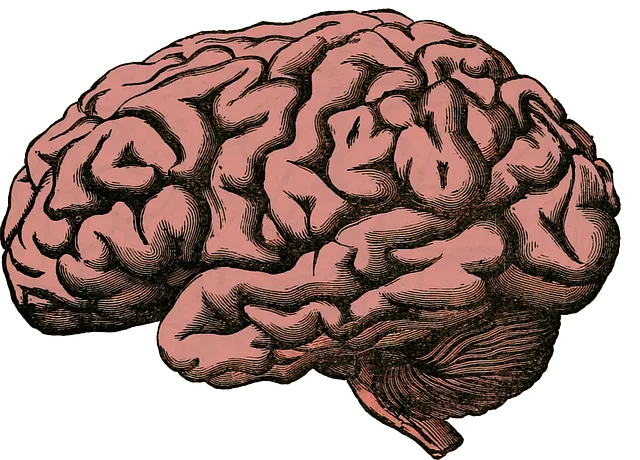Kaiser Permanente mental health Longmont leverages innovative programs like the RFM framework and Compassion Cultivation Practices to build resilience among healthcare providers, addressing both risks and mental health. Their holistic approach includes burnout prevention workshops, mindfulness exercises, and self-care rituals, fostering emotional healing and adaptability. By integrating these practices into daily routines, individuals can develop crucial components of emotional intelligence, reduce stress, and navigate life's challenges more effectively, ultimately benefiting their overall well-being.
“In today’s fast-paced world, resilience is a superpower that empowers individuals to bounce back from challenges. This article explores the powerful concept of RFM (Recovery, Flexibility, and Mastery) as a framework for building mental resilience. We delve into Kaiser Permanente’s innovative approach to mental health support in Longmont, showcasing their commitment to fostering community resilience. Additionally, we provide practical exercises and strategies to integrate RFM into daily life, offering valuable insights for those seeking to enhance their emotional well-being.”
- Understanding RFM: A Framework for Resilience
- Kaiser Permanente's Approach to Mental Health Support in Longmont
- The Importance of Building Resilience in Today's World
- Effective Exercises for Enhancing Resilience
- Integrating RFM into Daily Life: Practical Tips and Strategies
Understanding RFM: A Framework for Resilience

Resilience is a key component of mental well-being, and understanding how to build it is crucial, especially for mental health professionals. Kaiser Permanente Longmont recognizes this need and has implemented the RFM framework as a powerful tool for enhancing resilience among its care providers. RFM stands for Risk, Resilience, and Mental Health, offering a comprehensive approach to navigating challenges and supporting overall well-being.
This framework encourages professionals to identify risks in their work environments, whether it’s high-stress cases, complex patient scenarios, or even the mental illness stigma reduction efforts they undertake. By acknowledging these risks, they can then focus on building resilience through various exercises and practices, such as self-care strategies tailored to individual needs. The ultimate goal is to foster a robust mental health foundation that enables professionals to provide exceptional care while maintaining their own well-being, thereby positively impacting the lives of those they support.
Kaiser Permanente's Approach to Mental Health Support in Longmont

Kaiser Permanente, a leading healthcare organization, has implemented innovative programs to support mental health and well-being in its Longmont community. Their approach focuses on holistic care, recognizing the interconnectedness of physical and mental health. By integrating Compassion Cultivation Practices into their framework, Kaiser Permanente aims to foster resilience among healthcare providers and ultimately enhance patient outcomes. These practices encourage self-care and mindfulness, tools that are essential for navigating the demanding nature of the healthcare industry.
The organization also prioritizes Burnout Prevention Strategies, understanding the significant impact burnout can have on both provider and patient health. Through regular workshops and support groups, Kaiser Permanente encourages open dialogue and shared experiences, creating a sense of community among staff. This supportive environment promotes mental wellness and resilience, ensuring that healthcare providers in Longmont can continue to offer compassionate and effective care.
The Importance of Building Resilience in Today's World

In today’s fast-paced and often unpredictable world, building resilience is more crucial than ever for individuals seeking to navigate life’s challenges with strength and adaptability. The Kaiser Permanente mental health Longmont program recognizes this need and offers comprehensive resources to foster emotional healing processes. By engaging in resilience-building exercises, individuals can develop coping mechanisms that enhance their ability to withstand and recover from stressful situations, traumas, or even mental illness. This proactive approach is a game-changer in the ongoing Mental Illness Stigma Reduction Efforts, empowering people to take control of their mental well-being.
Resilience is not about avoiding difficulties but rather mastering the art of adaptation. For mental health professionals, integrating resilience-focused practices into their Risk Management Planning can significantly improve client outcomes. It enables them to support individuals in cultivating a growth mindset, where setbacks are seen as opportunities for learning and personal development. This holistic perspective on mental health encourages emotional healing and builds a buffer against future adversities, ensuring individuals emerge stronger and more resilient on the other side.
Effective Exercises for Enhancing Resilience

Resilience is a vital tool for navigating life’s challenges, and there are several effective exercises designed to enhance this crucial mental strength. At Kaiser Permanente mental health Longmont, we emphasize the importance of emotional intelligence and mind over matter principles in building resilience. One powerful approach is incorporating practices that cultivate positive thinking. Techniques like mindfulness meditation, deep breathing exercises, and journaling can help individuals manage stress and develop a more optimistic outlook.
These activities allow people to connect with their emotions, gain perspective, and foster self-awareness—all of which are essential components of emotional intelligence. By regularly engaging in these resilience-building exercises, individuals can strengthen their ability to adapt and bounce back from setbacks, ensuring they thrive even in the face of adversity.
Integrating RFM into Daily Life: Practical Tips and Strategies

Integrating RFM (Kaiser Permanente mental health Longmont’s recommended framework) into daily life can significantly enhance resilience and overall well-being. Start by adopting simple yet powerful practices like mindfulness exercises, which help cultivate present-moment awareness and reduce stress. Dedicate a few minutes each day to deep breathing or guided meditation to center yourself and improve focus.
Additionally, incorporate self-care rituals that promote emotional balance. This could be as easy as engaging in regular physical activity, maintaining a balanced diet, and ensuring adequate sleep. These habits, combined with compassion cultivation practices (like practicing kindness towards oneself and others), can strengthen your mental fortitude. Over time, you’ll find yourself better equipped to navigate life’s challenges, fostering effective stress management skills that are essential for building resilience.
Resilience is a powerful tool for navigating life’s challenges, and the RFM framework offers a structured approach to building this essential skill. As highlighted by Kaiser Permanente’s initiatives in Longmont, integrating resilience-focused exercises into daily routines can significantly enhance overall well-being. By understanding the RFM model and its practical applications, individuals can foster mental toughness, adapt to change, and thrive even in the face of adversity. This article has provided valuable insights into how we can all strengthen our resilience, ensuring a more robust and fulfilling life.






